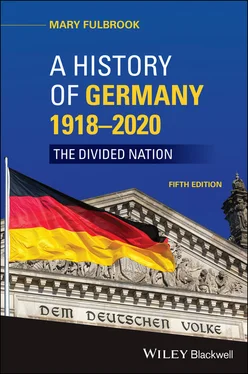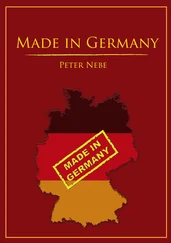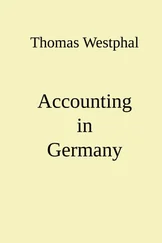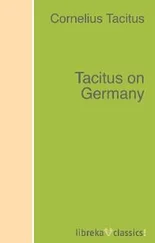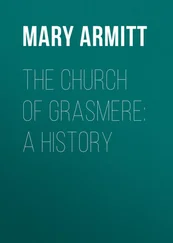Preface to the Second Edition
Revising this work for a second edition, ten years after its first appearance, has proved an interesting experience. I first completed the original manuscript as the GDR was in the process of implosion and collapse; I hung onto the manuscript, writing the chapter on the revolution and unification as events actually unfolded in the course of 1989–90. Not only was there no secondary literature at this time on the immediate events of 1989–90; there was also remarkably little of any depth on the longer course of GDR history, polarized as this field was between state-sanctioned Marxist–Leninist accounts in the East and a predominance of rather narrowly institutional, occasionally speculative political science analyses in the West, alongside dissident critiques and ambiguous literary interpretations. With the opening of the East German archives in the early 1990s this situation has now radically changed. There is a flourishing field of GDR historical research, with the emergence of whole new areas of inquiry, lively debates and conflicting interpretations. Meanwhile, research on the Third Reich has also moved on significantly, although perhaps – given the scale of what was already happening in this most controversial field before 1990 – proportionately less dramatically. While there have also been shifts of emphasis in the fields of the Weimar Republic and pre-1990 West German history, particularly in areas of social history and in studies seeking to cross the 1945 divide, these have perhaps not produced such a radically new intellectual landscape on the scale of that for the GDR.
I have therefore made willfully lopsided corrections to the original edition of this work. I have made amendments to those parts of the text which deal with areas where debates have moved on significantly in ways which cannot be ignored. I have added a brief epilogue to Chapter 13on Germany since unification. I have substantially updated what remains a stringently selective bibliography, in order to guide readers towards further reading in English on areas which could not be discussed more extensively in the text.
But I have resisted the temptation to add too many minor amendments throughout the text which, by seeking to recognize recent research findings and accommodate all the current concerns of academia, would have effectively unbalanced the general lines of the original narrative. I have also resisted the temptation to embark on major rewriting in areas where I now would approach questions rather differently, which could in effect have turned this into a whole new book (and I am mindful of the question of whether a bicycle which, after having a total overhaul, from brakes, chain, pedals, gears and saddle to new forks and frame, is still the ‘same’ bicycle as the original). It also seems important to ensure that the historiographical as well as historical watershed of 1990 does not result in obscuring some of the major issues and perspectives which remain important. I am thus acutely conscious of the fact that I have not been able to do full justice, within the constraints of a volume of this length, to all the research that has appeared since the first edition. I can only hope that readers will be stimulated to follow some of the suggestions in the notes and bibliography to explore in greater depth topics which I have not been able to cover more fully in this particular compass.
Mary Fulbrook
London
The story of Germany in the twentieth century is a compelling one, which has profoundly affected European and world history. It has dramatically shaped – and drastically truncated – the lives of millions of people, Germans and non‐Germans, and continues to be of central importance in European and world affairs.
At a very personal level, my own interest in German history was stimulated by my mother, a refugee from Nazi Germany. Born during the First World War, growing up in the Berlin of the 1920s and early 1930s, her whole life was radically affected by being the child of a ‘mixed marriage’, ensuring that as a ‘non‐Aryan’ she would have no future in Hitler’s ‘national community’. In many ways, this book is for her.
Friends and acquaintances in both Germanies (pre‐1990!) provided many insights. It would be invidious to name selected individuals. I am grateful particularly for the willingness of many East Germans to enter into very open and wide‐ranging discussions. On a number of visits to the GDR, I spoke with people from a wide variety of backgrounds, including members of the SED, dissenters, committed Protestants of a range of political persuasions, and others. Both arranged interviews and more informal talks turned out, in retrospect, to have taken place in a historic moment before a whole sociopolitical system was about to pass away, and have informed my understanding of the dynamics of pre‐revolutionary East Germany. Some of the views and comments made by people to whom I spoke before 1989 could not be captured again except as refracted and distorted with the ‘benefit’ of hindsight.
While actually engaged in writing this book, the East German revolution unfolded. The wonders of word processing made it relatively easy to change the present to the past tense with respect to discussions of Honecker’s Germany; more problematic was the realization that what is of interest to both author and readers changes rather fundamentally when a revolution is known to be on the political agenda. It then becomes apparent which elements of the historical kaleidoscope will prove to be of central importance and which can be consigned to the sidelines, as, perhaps, of only antiquarian interest. As the focus of current discussion changes, so too do the points of historical interest. The contemporary relevance that lies behind the construction of historical accounts becomes all too clear when the parameters that constitute the ‘present’ are rapidly changing.
I would like to thank Fontana for bearing with me while I sat on, and periodically altered, the text (sometimes it seemed I would have to update and revise Chapter 13in particular at weekly or even daily intervals). Over a somewhat longer period, I am grateful to colleagues and students at University College London for their stimulation and support. Students of my intercollegiate history seminar on the two Germanies will recognize many of our discussions in the chapters that form Part II. Participation in conferences organized by, among others, the German History Society, also helped to inform my views and approach. More particularly, I am extremely grateful to Professor William Carr, Dr Jill Stephenson and the reader for Fontana for their very valuable comments on the manuscript. While I have not been able to act on all their suggestions, they have certainly saved me from a number of errors and helped me to clarify aspects of the account. The responsibility for the inaccuracies and infelicities that remain is, of course, entirely mine.
The maps were produced by the UCL Geography Department, and I would particularly like to thank Louise Saunders for her work. Grants from the British Academy, the University of London Central Research Fund, and the UCL Dean’s Fund have assisted periods of research in Germany. I am very grateful for this support.
Finally, I would like to thank my husband and three children for suffering and sustaining the research for and writing of this book. Without my husband’s unfailing support, and more than equal partnership in parenting, the book could not have been written. Without my children, recounting the fates of those who were born into less fortunate historical circumstances might have been much less meaningful.
1
The Course of German History
In those extraordinary months after the fall of the Berlin Wall in November 1989, when discussion of the unification of the two Germanies was for the first time in forty years back on the serious political agenda, many voices were raised giving views on ‘the German question’. From a variety of quarters, prejudices were aired which had lain dormant – along with the memories, gas masks and other relics of the Second World War – over the years when the Cold War and the balance of terror had seemed to ensure a fragile peace in a divided Europe. Suddenly, the prospect of a united, economically powerful, and politically sovereign Germany, active again in central Europe and in a position to mediate between East and West, aroused strong emotions among those whose view of Germany had been largely confined to an ill-assorted combination of images of Hitler and sleek West German capitalist competitors. Who were the Germans? What was their national character, if they had one? Who were those people who also called themselves Germans, from the other, Eastern, side of the rapidly crumbling Iron Curtain, who in many ways seemed not a bit like their Western brothers and sisters? Provoked into having to make a rapid response to the collapse of communist rule in Eastern Europe, many people outside Germany found they had a serious deficit of knowledge and understanding. Many Germans, too – both East and West – found that the Iron Curtain, and the proclaimed ‘zero hour’ of 1945, had raised barriers to informed interpretation. History – although it did not come to an end in 1989, as some pundits, like the American scholar Fukuyama, wished to proclaim – had indeed seemed to have stopped, as far as many textbooks were concerned, in 1945. Thereafter, politics and sociology took over – to provide partial snapshots of an apparently eternal present, unconnected with the radically different past.
Читать дальше
